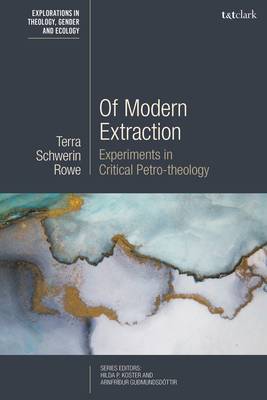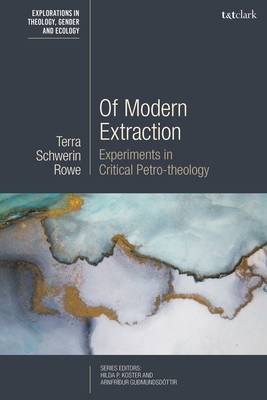
Bedankt voor het vertrouwen het afgelopen jaar! Om jou te bedanken bieden we GRATIS verzending (in België) aan op alles gedurende de hele maand januari.
- Afhalen na 1 uur in een winkel met voorraad
- In januari gratis thuislevering in België
- Ruim aanbod met 7 miljoen producten
Bedankt voor het vertrouwen het afgelopen jaar! Om jou te bedanken bieden we GRATIS verzending (in België) aan op alles gedurende de hele maand januari.
- Afhalen na 1 uur in een winkel met voorraad
- In januari gratis thuislevering in België
- Ruim aanbod met 7 miljoen producten
Zoeken
€ 203,95
+ 407 punten
Omschrijving
Predominant climate change narratives emphasize a global emissions problem, while diagnoses of environmental crises have long focused a modern loss of meaning, value, and enchantment in nature. Yet neither of these common portrayals of environmental emergency adequately account for the ways climate change is rooted in extractivisms that have been profoundly enchanted.
The proposed critical petro-theology analyzes the current energy driven climate crisis through critical gender, race, decolonial, and postsecular lenses. Both predominant narratives obscure the entanglements of bodies and energy: how energy concepts and practices have consistently delineated genres of humanity and how energy systems and technologies have shaped bodies. Consequently, these analytical and ethical aims inform an exploration of alternative embodied energies that can be attended to in the disrupted time/space of energy intensive, extractive capitalism.
The proposed critical petro-theology analyzes the current energy driven climate crisis through critical gender, race, decolonial, and postsecular lenses. Both predominant narratives obscure the entanglements of bodies and energy: how energy concepts and practices have consistently delineated genres of humanity and how energy systems and technologies have shaped bodies. Consequently, these analytical and ethical aims inform an exploration of alternative embodied energies that can be attended to in the disrupted time/space of energy intensive, extractive capitalism.
Specificaties
Betrokkenen
- Auteur(s):
- Uitgeverij:
Inhoud
- Aantal bladzijden:
- 216
- Taal:
- Engels
- Reeks:
Eigenschappen
- Productcode (EAN):
- 9780567708342
- Verschijningsdatum:
- 20/10/2022
- Uitvoering:
- Hardcover
- Formaat:
- Genaaid
- Afmetingen:
- 156 mm x 234 mm
- Gewicht:
- 476 g

Alleen bij Standaard Boekhandel
+ 407 punten op je klantenkaart van Standaard Boekhandel
Beoordelingen
We publiceren alleen reviews die voldoen aan de voorwaarden voor reviews. Bekijk onze voorwaarden voor reviews.









